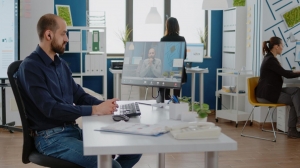please click here:
https://www.keychainventure.com/yutong.html
Yutong Bus Co., Ltd., established in 1993, is one of the world's leading bus manufacturers. Originating from the Zhengzhou Bus Repair Factory founded in 1963, Yutong has grown into a global leader, offering a wide range of vehicles, from city buses to long-distance coaches and electric buses. Its innovative designs, robust technology, and commitment to sustainability have allowed it to compete effectively on the international stage.
A Legacy of Innovation and Expansion
From Humble Beginnings to Industry Leadership
Yutong's story begins with the Zhengzhou Bus Repair Factory, a small workshop established in 1963. For decades, this facility focused on repairing buses and gradually developed expertise in manufacturing. In 1993, Yutong was officially incorporated as Zhengzhou Yutong Bus Co., Ltd., marking the start of a new era. By the late 1990s, Yutong had become the first Chinese bus company to reach a significant scale of industrial production, setting itself apart from competitors in both quality and innovation.
The company rapidly expanded its product line to include city buses, intercity coaches, tourist buses, and specialized buses such as school buses and electric vehicles. This diversification allowed Yutong to serve multiple transportation sectors, providing solutions for public transit authorities, private bus operators, and corporate clients worldwide.
Global Expansion and Market Presence
Yutong's international ambitions became evident as it began exporting buses to over 60 countries across Asia, Europe, Africa, and the Americas. By the mid-2010s, Yutong had sold tens of thousands of units globally, becoming a recognized brand in both developed and developing markets. The company has managed to maintain a balance between quality and cost-efficiency, a strategy that has helped it gain traction in competitive markets such as Europe and South America.
In addition to direct exports, Yutong has invested in overseas service networks and assembly plants. These initiatives allow for localized production, reduced shipping costs, and better customer support—critical factors in establishing trust with foreign partners.
Embracing Sustainability: The Electric Bus Revolution
Pioneering Electric Bus Technology
With the global shift toward sustainable transportation, Yutong entered the electric bus market in 2012. The company invested heavily in research and development to create energy-efficient, low-emission buses. Yutong's electric buses are designed to meet the growing demands of urban mobility while reducing environmental impact.
The company also developed advanced battery technology, thermal management systems, and vehicle control software to optimize energy efficiency and extend battery life. These innovations have allowed Yutong to produce buses capable of long-range operation while maintaining high reliability.
A Diverse Portfolio of Electric Buses
Yutong's electric buses cover multiple segments:
-
City Buses: Designed for urban transit, ranging from 8 to 12 meters in length, with rapid charging options and low-floor designs for easy boarding.
-
Intercity Coaches: Medium- and long-distance buses offering enhanced comfort, extended ranges, and advanced suspension systems for smooth rides.
-
Tourist Vehicles: Equipped with luxury interiors, air conditioning, and multimedia entertainment, catering to high-end transport markets.
-
Double-Decker Buses: Large-capacity vehicles for densely populated areas or tourist routes, combining range efficiency with passenger comfort.
For example, the Yutong U11DD, a battery electric double-decker bus, offers a range of over 400 km per charge and includes modern amenities such as Wi-Fi, air conditioning, and advanced safety systems. This versatility allows Yutong to adapt its products to different urban and regional needs.
Technological Advancements and Safety Features
Integration of Autonomous Driving Technology
Yutong has been actively testing autonomous driving technologies. The company conducted extensive road trials of self-driving buses, demonstrating the feasibility of automated public transport in urban environments. Autonomous buses are equipped with sensors, lidar, radar, and cameras to detect obstacles, maintain lanes, and optimize routes in real time.
The integration of autonomous systems is complemented by advanced telematics and fleet management software, enabling operators to monitor performance, predict maintenance needs, and enhance operational efficiency. These technologies position Yutong as a forward-thinking company in the global shift toward smart mobility.
Commitment to Safety and Reliability
Safety is a core principle in Yutong's bus designs. Electric buses feature:
-
Battery Protection Systems: Including nitrogen protection and thermal management to prevent overheating or fire hazards.
-
Collision Avoidance Systems: Automated braking and warning alerts to reduce the risk of accidents.
-
Lane Departure Warnings: Alerts drivers if the vehicle drifts from its lane, increasing safety in urban traffic.
-
Durable Chassis and Body Structures: Reinforced frames that protect passengers in the event of a collision.
These safety features not only comply with international regulations but often exceed industry standards, reflecting Yutong's commitment to quality and passenger protection.
Market Dynamics and Competitive Landscape
Yutong's Position in the Global Market
Yutong's focus on electric buses and innovation has strengthened its global position. In Europe, Asia, and parts of South America, Yutong has become a preferred brand for public transportation agencies seeking reliable and cost-effective solutions. The company's success can be attributed to:
-
Advanced electric bus technology
-
Wide product portfolio
-
Competitive pricing
-
Strong after-sales support
These factors have enabled Yutong to achieve significant market share in regions transitioning toward electric mobility.
Challenges and Opportunities
Despite its successes, Yutong faces challenges:
-
Competition: Global manufacturers like BYD, Mercedes-Benz, and Volvo continue to invest heavily in electric bus technology.
-
Regulatory Compliance: Adapting to different safety, emission, and operational standards in various countries requires constant updates to vehicle designs.
-
Supply Chain Dependencies: Electric bus production relies on battery supply chains, which can be subject to price fluctuations and material shortages.
Opportunities include expanding into emerging markets, investing further in autonomous driving, and leading innovation in smart city mobility solutions.
Comparative Analysis: Yutong vs. Competitors
| Feature | Yutong | BYD | Mercedes-Benz Buses |
|---|---|---|---|
| Global Market Share | ~10% | ~12% | ~8% |
| Electric Bus Portfolio | Extensive (5–18m) | Extensive (7–18m) | Moderate (7–15m) |
| Autonomous Driving | Pilot programs initiated | Ongoing development | Limited integration |
| Safety Features | Advanced (battery, collision) | Standard (collision warning) | Standard (lane assist) |
| European Market Share | 14% in 2024 | 11.8% in 2024 | 7% in 2024 |
This comparison highlights Yutong's competitive strengths in electric bus technology, safety features, and global market reach.
Looking Ahead: The Future of Yutong Bus
Strategic Initiatives for Growth
Yutong plans to expand its global presence through additional assembly plants and service centers. This will allow for quicker delivery, lower logistics costs, and better local customer support. The company is also investing in research for next-generation electric buses, including hydrogen-powered options and further autonomous driving technologies.
Commitment to Sustainability
Urban centers worldwide are increasingly adopting green transportation policies. Yutong's investment in zero-emission buses positions the company as a leader in sustainable mobility. Initiatives include developing longer-lasting batteries, energy-efficient drivetrains, and environmentally friendly manufacturing processes. These efforts reinforce Yutong's reputation as a forward-looking manufacturer addressing global challenges such as climate change and urban congestion.
Frequently Asked Questions (FAQs)
1. What types of buses does Yutong manufacture?
Yutong produces city buses, intercity coaches, tourist vehicles, school buses, and electric buses, including double-decker and long-range models.
2. In which countries are Yutong buses sold?
Yutong buses are sold in over 60 countries, spanning Asia, Europe, Africa, and the Americas.
3. What is the range of Yutong's electric buses?
Electric buses have ranges from 200 km to over 400 km per charge, depending on model and usage.
4. Does Yutong offer autonomous driving technology?
Yes, Yutong has piloted autonomous buses and continues developing self-driving capabilities for urban and highway use.
5. What safety features are included in Yutong's buses?
Safety features include battery protection systems, collision avoidance, lane departure warnings, and reinforced chassis structures.
6. How does Yutong compare to other electric bus manufacturers?
Yutong is competitive due to its extensive electric bus portfolio, innovative safety features, and strong global presence.
7. Are Yutong buses environmentally friendly?
Yes, Yutong focuses on low-emission and zero-emission vehicles, promoting sustainable public transportation.
Article Summary
Yutong Bus Co., Ltd., established in 1993, has become a global leader in bus manufacturing. With a wide range of city, intercity, and electric buses, Yutong focuses on innovation, safety, and sustainability. Its global expansion and technological advancements position it as a key player in the future of public transportation worldwide.






